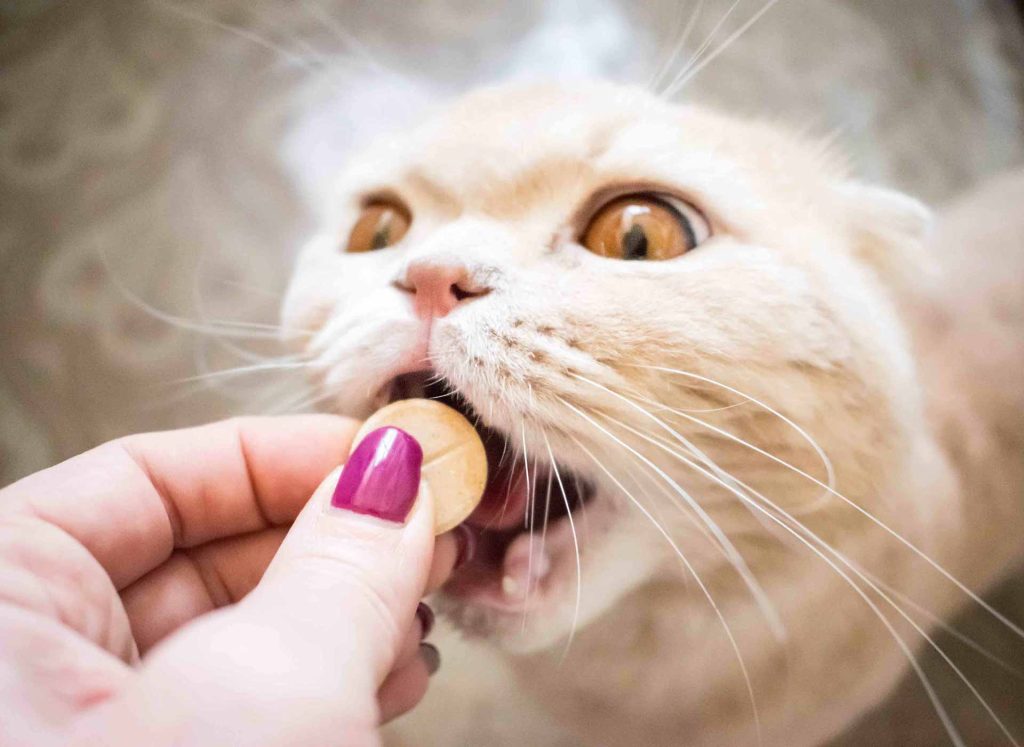Cats require a well-balanced diet to thrive, and vitamins and minerals play a crucial role in their overall well-being. Proper nutrition ensures a healthy immune system, strong bones, a shiny coat, and optimal organ function. Understanding the importance of these essential nutrients can help cat owners provide the best possible care for their feline companions.
Essential Vitamins for Cats
Vitamins are organic compounds that support various physiological processes in a cat’s body. They are classified into two categories: fat-soluble and water-soluble vitamins. Each vitamin serves a unique function, and a deficiency can lead to severe health issues.
Vitamin A: This fat-soluble vitamin is vital for maintaining good vision, a healthy immune system, and proper growth and development. Cats cannot convert beta-carotene into vitamin A, so they must obtain it from animal-based sources such as liver and fish. A deficiency can result in night blindness and skin problems, while an excess can lead to toxicity.

Vitamin D: Often referred to as the “sunshine vitamin,” vitamin D is crucial for calcium and phosphorus balance, supporting healthy bones and teeth. Unlike humans, cats cannot synthesize sufficient vitamin D from sunlight and must get it from their diet. Deficiencies can lead to rickets and bone deformities.
Vitamin E: This antioxidant vitamin helps protect cells from oxidative damage and supports a healthy immune system and skin. Vitamin E is commonly found in fish, eggs, and certain plant oils. A deficiency can cause muscle degeneration and reproductive issues.
Vitamin K: Essential for blood clotting, vitamin K is found in leafy greens and liver. Cats typically obtain sufficient amounts from their diet, but certain conditions, such as poisoning or liver disease, can interfere with its absorption, leading to excessive bleeding.
B-complex Vitamins: These water-soluble vitamins, including B1 (thiamine), B2 (riboflavin), B6 (pyridoxine), and B12 (cobalamin), are critical for energy metabolism, nerve function, and red blood cell production. Cats require adequate B vitamins from sources like meat, eggs, and dairy. Deficiencies can cause neurological problems, weight loss, and poor coat condition.
Essential Minerals for Cats
Minerals are inorganic elements that support numerous bodily functions, from bone health to enzyme activity. Cats require both macro and micro minerals in their diet to maintain optimal health.
Calcium and Phosphorus: These two minerals work together to support strong bones and teeth. An imbalance, such as excessive phosphorus and insufficient calcium, can lead to brittle bones and dental issues. Proper calcium-to-phosphorus ratios are crucial in a cat’s diet, and they can be obtained from animal bones, dairy products, and high-quality cat food.

Magnesium: Magnesium is essential for muscle function, nerve transmission, and enzyme activity. However, excessive magnesium intake can contribute to urinary tract issues, such as struvite crystal formation. Cat owners should ensure their feline’s diet contains a balanced amount of magnesium to prevent health complications.
Iron: This mineral is vital for oxygen transport in the blood and overall cellular function. Cats require iron from animal sources like red meat and liver. Deficiencies can lead to anemia, lethargy, and poor appetite.
Zinc: Zinc supports immune function, skin health, and wound healing. It is commonly found in meat and fish. Zinc deficiency can result in skin disorders, slow growth, and a weakened immune system.
Potassium and Sodium: These electrolytes play a critical role in maintaining fluid balance, nerve function, and muscle contractions. They are naturally present in meat-based diets, but imbalances can lead to dehydration, muscle weakness, and kidney issues.
Copper: Copper aids in the formation of red blood cells and connective tissue. It also supports the pigmentation of a cat’s coat. Rich sources of copper include liver, seafood, and whole grains. A deficiency can lead to anemia and coat discoloration.
The Importance of a Balanced Diet
Providing a nutritionally balanced diet that includes all essential vitamins and minerals is key to a cat’s long-term health and well-being. Many commercial cat foods are formulated to meet the dietary needs of cats, but pet owners should carefully check labels to ensure high-quality ingredients. Homemade diets should be carefully planned with the help of a veterinarian to prevent nutritional imbalances.
Nutrient deficiencies or excesses can lead to serious health conditions. A deficiency in essential vitamins and minerals can result in developmental issues, weakened immunity, and chronic diseases. Conversely, excessive intake of certain nutrients, such as vitamin A or calcium, can be harmful.

Supplementing Your Cat’s Diet
In some cases, supplementation may be necessary, particularly for cats with specific health conditions, dietary restrictions, or aging cats with changing nutritional needs. However, it’s important to consult a veterinarian before introducing supplements, as over-supplementation can have adverse effects.
Conclusion
Vitamins and minerals are fundamental to a cat’s health, supporting everything from a shiny coat to strong bones and a robust immune system. Providing a well-balanced diet that meets their nutritional needs is essential for their well-being. By understanding the role of these essential nutrients and making informed dietary choices, cat owners can ensure their furry companions lead a long, healthy, and happy life.